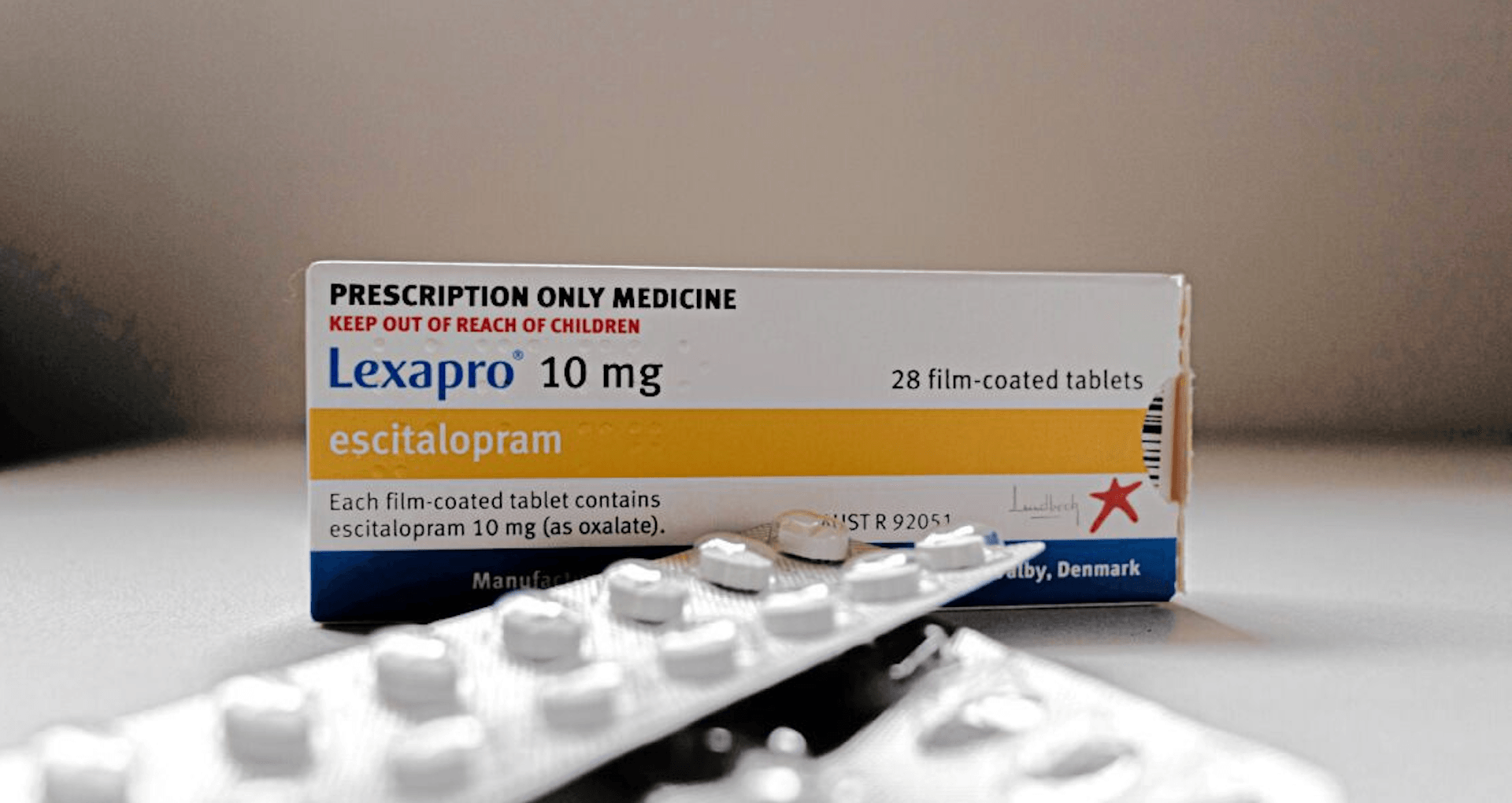Lexapro and Panic Attacks


Wondering if Lexapro is making your anxiety worse? Learn the answer to 'can lexapro cause panic attacks,' why it happens, and how to manage symptoms effectively.
Lexapro (escitalopram) is a commonly prescribed SSRI, often used to help manage anxiety and depression. However, if you’ve recently started treatment and noticed a rise in anxiety or even panic attacks, you’re not alone—and you might be wondering, can Lexapro cause panic attacks?
At The Forge Recovery Center, we understand how unsettling unexpected symptoms can be when you’re working toward mental health recovery. Our mission is to support you or your loved one through every step of healing. In this article, we will explore the connection between Lexapro and panic attacks and what you can do about it.
Understanding Lexapro

Lexapro, known generically as escitalopram, belongs to a class of medications called selective serotonin reuptake inhibitors (SSRIs). SSRIs work by increasing the amount of serotonin—a chemical that helps regulate mood, sleep, and emotions—in the brain. By preventing serotonin from being reabsorbed too quickly, Lexapro helps improve communication between brain cells, often leading to reduced symptoms of depression and anxiety.
Lexapro is primarily prescribed for major depressive disorder (MDD) and generalized anxiety disorder (GAD), both of which can deeply impact daily functioning and quality of life. For many individuals, Lexapro offers a way to regain emotional stability and reduce overwhelming feelings of sadness, worry, and fear.
Like any medication, Lexapro can cause side effects, particularly in the first few weeks of use. Some of the most common ones include nausea, headaches, dry mouth, drowsiness, insomnia, and increased sweating. In rare cases, individuals may also experience heightened anxiety or restlessness during the adjustment phase.
At The Forge Recovery Center, we recognize that understanding how medications like Lexapro work—and knowing what to expect—plays a crucial role in your recovery journey. Whether you’re exploring treatment options for yourself or someone you love, our team is here to guide you through safe, compassionate, and personalized care.
Lexapro and Panic Attacks: The Connection

If you’ve started Lexapro and noticed an increase in anxiety or even panic attacks, you’re not imagining it. Some individuals experience these symptoms shortly after beginning the medication.
Initial Reactions: What You Might Experience
If you recently started taking Lexapro and have noticed an increase in anxiety or even the onset of panic attacks, you are not alone. Some individuals experience a temporary worsening of anxiety symptoms when beginning Lexapro.
This can feel confusing and alarming, especially when you are expecting the medication to help ease your symptoms, not intensify them. These reactions are usually part of the body’s initial response to the medication and are often short-lived.
Why It Happens: Understanding the Adjustment Phase
Lexapro is an SSRI, meaning it alters serotonin levels in the brain—a chemical closely tied to mood, anxiety, and emotional regulation. When serotonin levels are suddenly adjusted, your brain and body may need time to recalibrate. During this adjustment period, the brain’s chemical signaling can be somewhat unpredictable, leading to heightened anxiety or even panic attacks in the early stages of treatment.
This phenomenon, sometimes referred to as “activation,” is not unique to Lexapro. Many SSRIs carry the potential for an initial increase in anxiety symptoms before the therapeutic effects fully take hold. Understanding that this can be a normal part of the process helps reduce fear and encourages patients to stay in close communication with their healthcare providers.
How Long It Lasts: What to Expect Over Time
The good news is that these side effects are often temporary. For most people, increased anxiety or panic attacks begin to subside within two to four weeks as the body adjusts to Lexapro. Once the brain adapts to the new serotonin levels, the calming and mood-stabilizing effects of the medication generally become more noticeable.
However, if the symptoms are severe, persist beyond a few weeks, or interfere significantly with your daily life, it’s important to consult your doctor. You may need a dosage adjustment, a slower titration schedule, or a different medication altogether.
At The Forge Recovery Center, we emphasize that managing these early reactions is a critical part of successful treatment. You deserve compassionate, expert care as you work toward a healthier, more stable future.
Are You Struggling with Mental Health or Addiction?
We Can Help. Call Us Now!
CALL: 877-839-1772
Managing Panic Attacks While on Lexapro
Experiencing panic attacks after starting Lexapro can feel discouraging, but it’s important to know that you have options—and you don't have to face it alone.
The first step is open communication with your healthcare provider. If you notice an increase in panic attacks, anxiety, or other concerning symptoms, reach out promptly. Sometimes, these reactions are part of the normal adjustment period. Other times, they may signal the need for changes in your treatment plan.
Dosage adjustments are a common solution. Your provider might lower your dose to ease side effects or suggest switching to a different medication altogether if Lexapro doesn’t feel like the right fit for you. Every individual’s response to antidepressants is unique, and finding the right balance often takes some fine-tuning.
Beyond medication changes, it’s critical to build strong support strategies into your recovery. Therapy—especially cognitive behavioral therapy (CBT)—can equip you with tools to manage panic symptoms more effectively. Lifestyle modifications such as regular exercise, mindfulness practices, healthy sleep routines, and reducing stimulants like caffeine can also make a noticeable difference.
At The Forge Recovery Center, we believe recovery is about treating the whole person—not just the symptoms. Suppose Lexapro or any medication is part of your journey. In that case, we’re here to support you with personalized treatment plans, compassionate care, and a community committed to helping you or your loved one thrive.
The Forge Recovery Center’s Approach

At The Forge Recovery Center, we understand that no two individuals experience mental health challenges in the same way. That’s why we focus on creating personalized treatment plans that meet you exactly where you are. Whether you’re starting Lexapro, adjusting to its effects, or exploring different options, we design a plan that carefully integrates both medication management and therapeutic support—because medication alone is rarely the full answer.
Our approach begins with a thorough, compassionate assessment of your medical history, current symptoms, and personal goals. If you’re experiencing issues like panic attacks while on Lexapro, we work closely with you and your healthcare providers to monitor your symptoms carefully. Adjustments to your medication—whether it’s a change in dosage, timing, or trying an alternative—are made thoughtfully, always prioritizing your safety, comfort, and long-term recovery.
But healing isn’t just about medications. At The Forge Recovery Center, we believe in holistic care—which means we address not only your biological needs but also your psychological and social well-being. Alongside medication management, we offer evidence-based therapies like cognitive behavioral therapy (CBT), mindfulness practices, trauma-informed counseling, and relapse prevention planning. We also emphasize lifestyle factors like nutrition, exercise, and healthy coping mechanisms, recognizing that lasting recovery touches every aspect of your life.
Ongoing monitoring and flexible treatment adjustments are central to our philosophy. Recovery isn’t a straight line—it’s a process that requires attention, patience, and adaptability. As you move forward, we regularly evaluate your progress, listen to your feedback, and make necessary changes to ensure your treatment remains effective and empowering.
At The Forge Recovery Center, you are not just a patient—you are a valued individual with a story, dreams, and the ability to build a better future. Whether you’re managing panic attacks on Lexapro or seeking comprehensive mental health or addiction treatment, we are committed to walking alongside you every step of the way, providing the expert care and genuine support you deserve.
Are You Struggling with Mental Health or Addiction?
We Can Help. Call Us Now!
CALL: 877-839-1772
Struggling with Panic Attacks on Lexapro? We Can Help
While Lexapro can be an effective tool for managing anxiety and depression, it may initially cause increased anxiety or panic attacks in some individuals. If you're experiencing these symptoms, it’s important to seek professional guidance rather than navigating it alone. At The Forge Recovery Center, we specialize in personalized, compassionate care to help you find the right path forward. Whether it’s medication support, therapy, or holistic recovery, we’re here to help you or your loved one reclaim a healthier, more fulfilling life. Reach out today—you don’t have to face this alone.
Are You Struggling with Mental Health or Addiction?
We Can Help. Call Us Now!
CALL: 877-839-1772





